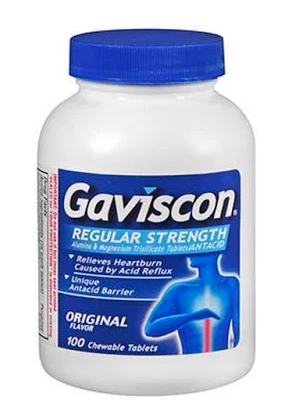 The maker of a leading over-the-counter antacid has withdrawn its application for approval of the drug in China because a clinical trial of the product in that country was marred by “major protocol deviations.”
The maker of a leading over-the-counter antacid has withdrawn its application for approval of the drug in China because a clinical trial of the product in that country was marred by “major protocol deviations.”
Researchers for the company, Reckitt Benckiser, maker of Gaviscon, had published a report on the study in 2015 in the journal Alimentary Pharmacology & Therapeutics. But the journal has now retracted the article, “Randomised clinical trial: The clinical efficacy and safety of an alginate‐antacid (Gaviscon Double Action) versus placebo, for decreasing upper gastrointestinal symptoms in symptomatic gastroesophageal reflux disease (GERD) in China,” at the behest of the drug maker.
According to the notice:
The above article from Alimentary Pharmacology & Therapeutics, published online on 31 July 2015 on Wiley Online Library (wileyonlinelibrary.com), and in Volume 42, pp. 845‐854, has been retracted by agreement between the authors, J. Sun, C. Yang, H. Zhao, P. Zheng, J. Wilkinson, B. Ng and Y. Yuan, the journal Editors in Chief, J. M. Rhodes and C. W. Howden, and John Wiley Sons Ltd. The retraction has been agreed upon following major protocol deviations at some study sites and several instances of non‐compliance that are sufficiently serious to warrant the withdrawal of the Chinese New Drug Application for Gaviscon Double Action.
The trial is registered on ClinicalTrials.gov. The entry says the study, which enrolled 1,107 patients, began in June 2013 and ended in May 2014.
Colin Howden, a co-editor of the journal, told us that the publication first learned about problems with the study in January 2018.
The initial request for retraction came from the sponsoring company and was then backed up by a letter from all the authors.
Martin Tilly, the executive publishing manager for Wiley, which puts out the journal, added in an email:
The request from the authors was received in April. We requested clarification on the problem with the study and all parties subsequently agreed to the retraction in September.
The paper has been cited 17 times, according to Clarivate Analytics’ Web of Science.
We contacted Reckitt Benckiser for comment but have yet to hear back. We also tried to reach Joanne Wilkinson, a company researcher and a co-author of the retracted paper, for comment.
We haven’t seen any other retractions linked to this study. But we did find another publication involving some of the same researchers and what appears to be the same trial. “Alginate antacid (Gaviscon DA) chewable tablets reduce esophageal acid exposure in Chinese patients with gastroesophageal reflux disease and heartburn symptoms” appeared in the Journal of Digestive Diseases from 2016. The editor of the journal did not immediately respond to a request for comment about whether he would review the article in light of the retraction.
Like Retraction Watch? You can make a tax-deductible contribution to support our growth, follow us on Twitter, like us on Facebook, add us to your RSS reader, sign up for an email every time there’s a new post (look for the “follow” button at the lower right part of your screen), or subscribe to our daily digest. If you find a retraction that’s not in our database, you can let us know here. For comments or feedback, email us at [email protected].
Sponsoring organization and all authors request retraction after discovering problems: not worthy of a “doing the right thing” tag?
Authors from clinical sites wouldn’t have had much choice after sponsoring company realized that at least some of them deviated from their protocol.
No fun in publishing that put puts it’s authors in doubt.
If the issues are bad enough to stall its approval in China, should the drug’s US approval also be reconsidered?
Why?? The study was done at clinical sites in China to get data for approval by Chinese FDA. The company did the right thing by withdrawing the application when they found out Chinese sites broke protocol.
If there was sufficient data for it to be approved by the US FDA, why did they need to do more trials to be approved in China?
Different counties have their own “FDAs” and their own requirements. It may have been necessary to get data in China to get approval from Chinese FDA. Formulations are not always the same in different countries. Indications may differ as well. After all, would you expect our FDA to approve a Chinese company’s drug because the Chinese FDA had approved it?